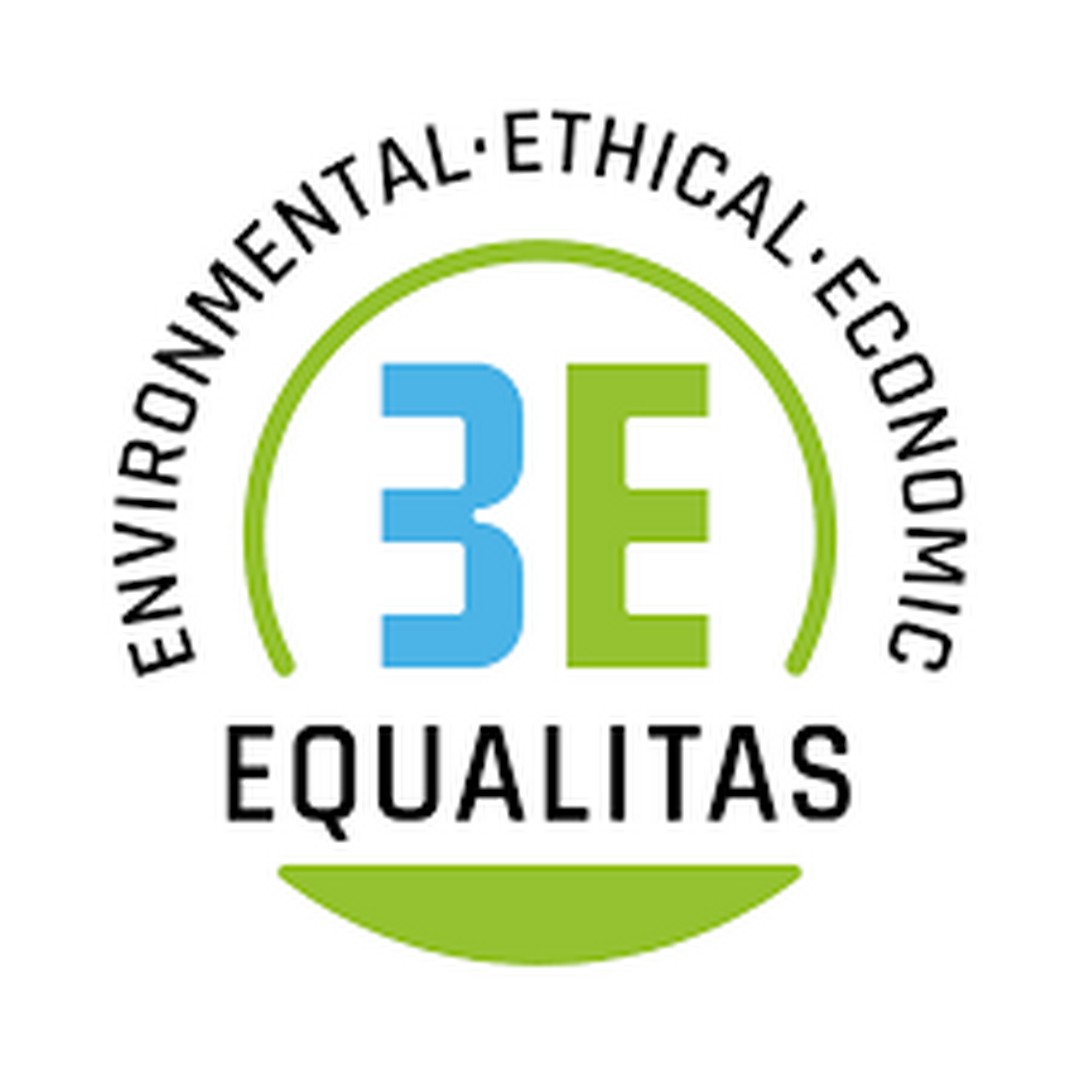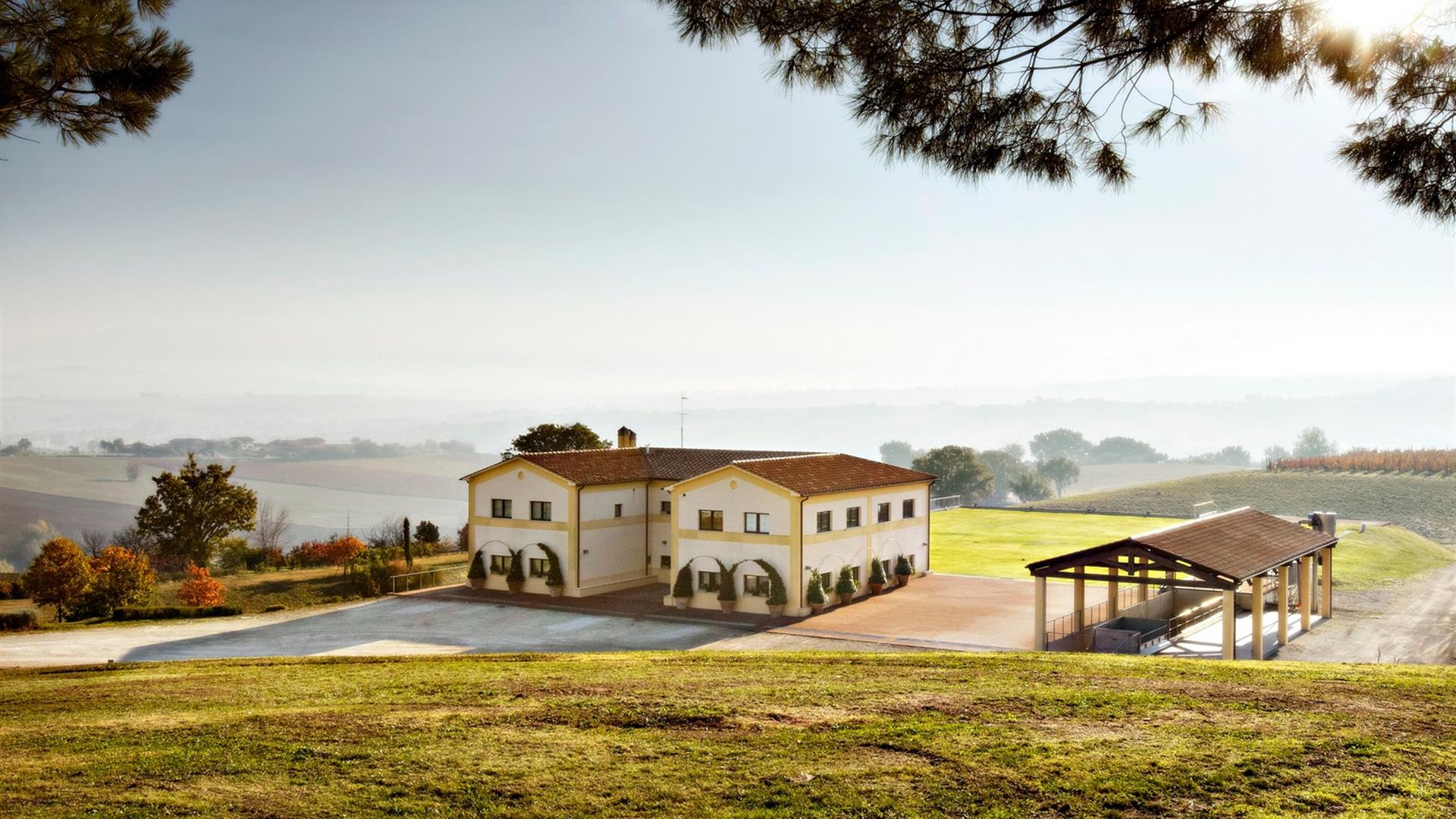Certified sustainability: Tenute del Cerro measures its impact
-
July 29, 2025min
In an era in which sustainability is in danger of becoming a mere blank label, Tenute del Cerro has chosen another path: practical, measurable, traceable. A path built day by day, which involves every stage of the production chain – from the vineyard to the bottle, from logistics to delivery, right down to packaging – and which today translates into new environmental and social certifications, essential tools for giving visible form to a profound commitment.
‘All the work done over the last few years has led us to these results: it’s not something you decide overnight,’ says Emanuele Nardi, Oenologist and Production Manager of Tenute del Cerro. “It is a long journey, which was born out of reflection, especially on the subject of sustainability. We asked ourselves: is our work really sustainable or not? And in our sector, what is the certification that can really give us concrete answers?”
A new certificate for Tenute del Cerro for sustainability
The answer came with Equalitas, a certification designed for the wine sector, capable of analysing sustainability in its three fundamental dimensions: environmental, economic and social.
‘In our field there are so many certificates to choose from,’ explains Nardi. “But Equalitas is the only one that is perfectly suited to our reality, because it was created for the wine business.
It does not only focus on the production or agricultural aspect but examines the entire supply chain in great detail.” In other words, not only the internal processes are assessed, but also everything that revolves around the wine business: from the sourcing of materials to transport, from packaging to distribution. ‘Everything is thoroughly analysed,’ Nardi continues, ‘from the supplier who brings you the rootstock to the customer who receives the wine. Even seemingly marginal aspects, such as the employees’ commute to work or the kilometres travelled by couriers for deliveries, are included in the evaluation”.
It was a demanding choice, which required the active involvement of every area of the company: from administration, responsible for collecting consumption data, to the countryside, the cellar and logistics. As Nardi is keen to emphasise, “It was a concerted effort between everyone: a meticulous analysis, which forced you to look inside yourself and put every single step under the lens”.

Carbon footprint and water footprint in the wine field: the data of the change
On the path towards Equalitas certificate, Tenute del Cerro decided to move one step further, integrating two fundamental indicators to measure the company’s environmental impact: the calculation of the carbon footprint and the water footprint.
‘We have chosen to investigate even further,’ explains the Production Manager, ‘by adding two tools that give us a real and accurate picture of our emissions and consumption. On the one hand, the CO₂ and greenhouse gases generated by the company’s activities, and on the other, our impact on the water system”. These indicators allow the company not only to measure how much it affects natural resources, but also to set annual climate targets, in line with the directives of the 2030 Agenda, that affect every operational area.
‘Every year we set targets: for example, to reduce water consumption when washing in the cellar, to install new photovoltaic systems on one of our estates, to reduce electricity consumption, or to use lighter bottles, so as to reduce the emissions associated with transport and glass production,’ he continues. But it’s not just about numbers, as he is keen to explain: ‘These parameters help us to clarify. Because when we talk about sustainability, we often get lost in a multitude of data, with the risk of not knowing what really makes a difference. Working with tools like these allows us to understand which aspects we can – and must – intervene on“.
This precision work makes the entire process transparent and helps transform sustainability into an active system, made up of daily, measurable and shared choices.

An integrated system of international certifications: quality, environment, responsibility
Tenute del Cerro’s path towards sustainability is not limited to the environmental dimension. In fact, over time the company has built an integrated system of certifications that covers different but complementary areas: social ethics, quality, food safety and environmental management. We are talking about recognised standards such as ISO 9001, ISO 14001, IFS Food and SA8000, already active within the Group’s companies.
‘These certificates allow us to monitor every strategic area: from the respect of workers’ rights to the safety of production processes, from waste management to energy efficiency,’ Nardi emphasises. “But above all, they have a fundamental value because they work at an international level: they compare our company with thousands of other enterprises, with clear and shared parameters. This allows us to understand where we are, if we are doing our job well or if we can improve: it is a tangible way to set goals, measure results and keep the quality of our work high. And above all to tell, in a transparent way, what we do every day’.
A tangible, measured and transparent effort
For Tenute del Cerro, sustainability is consequently a wide-ranging project that is reflected in every choice, from infrastructures to day-to-day operations. The new logistics hub, built according to strict environmental criteria, or the purification plant that has just started operation, are just a few practical examples of this commitment.
Currently, Equalitas certificate covers the Fattoria del Cerro and La Poderina estates, but an extension to Colpetrone and Tenuta di Monterufoli is already planned, demonstrating a shared and progressive vision.
‘We work in extraordinary environmental and landscape contexts,’ Nardi observes, ‘and it would be a shame to ruin them. That is why our goal is to protect them, doing so seriously and responsibly. It is essential to have a third party certifying our path, because otherwise we would risk being too self-referential.
Transparency to the outside world is an essential part of this approach: the Equalitas label can be placed on the back label, allowing the consumer to easily recognise the certified wine. ‘Through a QR code, anyone who buys one of our bottles will be able to access all the information about the certification,’ Nardi concludes. “It is a direct and concrete way to share our commitment.
In an era in which the word “sustainability” is often used without foundation, the Unipol Group’s wine company has chosen the most challenging path: one of rigorous work, data collection, and continuous verification. Because protecting the land we cultivate and the workers is not just an ethical choice but a daily responsibility.

Còlpetrone
Founded in 1995 with the construction of the current winery, it is one of the most important production realities in the Montefalco DOCG area.

{title}
{description}